|
|
|||||
This week, we look at corruption and the global helpers that enable it. |
|||||
|
|
|||||
Top newsGoing global: Grand corruption has gone global: misuse of COVID funds, dirty money in politics, and corporate collapses are now a common feature in global headlines. A decade ago, ONE exposed a Trillion Dollar Scandal enabled by legal firms, global banks, and the legal systems of Europe and North America, and we worked to get laws on the books to change it. But it’s a hard nut to crack. This week we’re digging into some of the latest examples across the African continent. All in the family: Authorities in the US are seeking to seize a US$7.1 million apartment belonging to the daughter of Congolese President Denis Sassou Nguesso. They allege the money used for the 2014 purchase of the luxury apartment at Trump International Hotel & Tower in New York City was embezzled from the state. A series of “sham” contracts and shell companies were allegedly used to steal the money. It’s not the first time President Sassou Nguesso or his offspring have been caught up in corruption scandals. The Pandora Papers revealed that he personally controlled lucrative diamond mines, which are amongst the Republic of Congo’s most lucrative assets. His son Denis-Christel has been accused of looting US$50 million in state funds through inflated contracts. Like with his sister, the US government is trying to seize Denis-Christel’s apartment, this one in Florida. Family ties: The Sassou Nguesso family isn’t the only – or the most egregious – example of alleged corruption by African heads-of-state and their families. The Obiang family in Equatorial Guinea arguably holds that honour. President Teodoro Obiang, the world’s longest-ruling leader (nearly 45 years and counting), has been repeatedly accused of self-enrichment. His son and (by sheer chance) vice-president, Teodoro Nguema Obiang, has been the focus of corruption investigations on three continents. France seized his 101-room mansion in Paris along with a fleet of sports cars. The US seized a US$35 million mansion and accused him of stealing US$300 million in state funds. But he doesn’t keep all that wealth to himself: he sometimes hands out toys at Christmas. A real modern day Santa Claus. Administering corruption: Nigeria has recovered 30 billion naira (US$24 million) as part of a corruption investigation into a government minister. Betta Edu, the Minister of (wait for it...) Humanitarian Affairs and Poverty Alleviation, was suspended in January over allegedly diverting public funds into a personal bank account. A subsequent investigation discovered funds in not one, but more than 50 bank accounts. The Nigerian government also filed 26 new charges against former Central Bank Chief Godwin Emefiele related to alleged abuses of office and corruption. He originally faced 14 charges brought against him in January. Amongst other allegations, he is accused of executing US$2 billion of fraudulent foreign exchange allocations. Impunity candidate: Former and now-wanna-be South African President, Jacob Zuma, won his appeal to run in South Africa’s 29 May parliamentary election. Parliament will then choose the next president. The Electoral Court overturned the Independent Electoral Commission’s ruling that Zuma was ineligible to run. The constitution bans people from running for office if they’ve been convicted of a crime and sentenced to 12 or more months in prison in the last five years. That describes Zuma, who was convicted and sentenced to 15 months in prison in 2021 for ignoring a court order to cooperate in a corruption investigation. The Electoral Court did not provide a rationale for its decision. Zuma will stand as the presidential candidate for the new uMkhonto weSizwe Party. It’s a stunning comeback for Zuma, whose presidency was plagued by corruption scandals. Helping hands: It takes two to tango when it comes to corruption. Corrupt officials require the services of a cadre of accountants, lawyers, bankers, and middlemen who help them move and hide stolen assets. Much of that stolen money ends up in banks, real estate, and art in places like London, New York, Paris, Dubai, and the Caribbean. And its ownership is typically hidden beneath layers of secretive companies and trusts, making it hard, if not impossible, for legal authorities or journalists to trace it. Corruption in Africa isn’t just an African problem, it’s a global problem. Closing loopholes: There’s been notable progress to make it harder for corrupt actors to hide stolen funds, especially in the past decade. Dozens of countries – including Canada, all 27 EU members, Kenya, Nigeria, the UK, and US – have enacted laws that shine greater transparency on the owners of companies. Magnitsky laws – which enable governments to sanction foreign individuals involved in corruption – have been enacted around the world, including in Australia, Canada, the EU, Gibraltar, Jersey, the UK, and US. From the ONE Team
The numbers
 |
|||||
|
|
|||||
Quote of the week
|
|||||
|
|
|||||
What you should read, watch, and listen to:
|
|||||
|
|
|||||
A look ahead15-19 April: UNGA Sustainability Week 15-21 April: IDA Forum and Deputy Meetings, Washington DC, US 19-21 April: 2024 World Bank / IMF Spring Meetings, Washington DC, US 19-21 April: G20 Finance Ministers meeting, Brasilia, Brazil |
|||||
|
|
|||||
The ONE Campaign’s data.one.org provides cutting edge data and analysis on the economic, political, and social changes impacting Africa. Check it out HERE. |
|||||
|
|
|||||
|
|
|||||
Did you like today's email?Loved it Mehhh Hated it |
|||||
|
|
|||||
Did you like today's email?Loved it Mehhh Hated it |
|||||
|
|
|||||
Wie hat dir dieser Newsletter gefallen?Richtig gut! Ging so… Überhaupt nicht. |
|||||
|
|
|||||
|
|||||
|
|||||
|
|||||
|
This email was sent by ONE.ORG to test@example.com. You can unsubscribe at any time. ONE Campaign |
